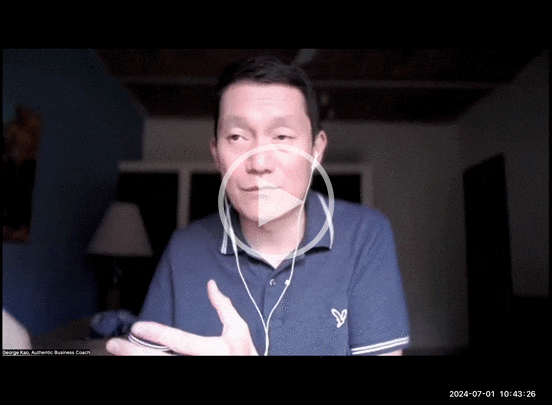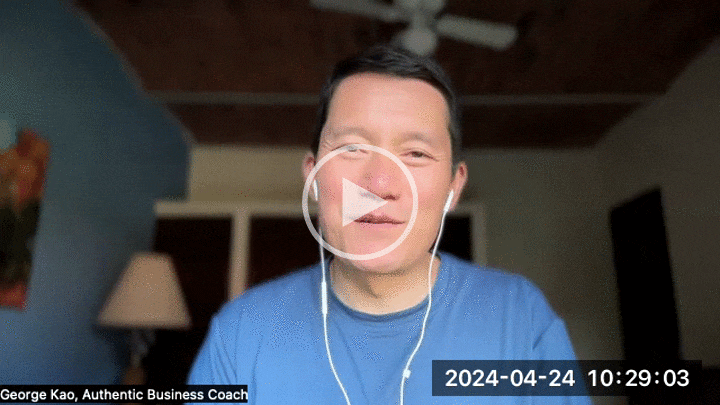- Orientation
- BizPlan
- BizPlan25
- Authentic Speaking
- Authentic Market Discovery
- Create Aligned Offers
- Joyful Productivity (Course)
- ✨ Authentic Outreach (AO)
- Joyful Pro
- Blog-to-Book
- 🚀 Course Creators
- 🖼️ Your Signature Framework
- 🙋 Effortless Yes
- 🌈 Energy Signature
- Meta Ads (FB / IG Advertising)
- 📱 Instagram Mastery
- 🎤️ Interview Mastery
- Launch Your Group Program
- Netcaring
- 🦸🏽✍🏽 Soulful Content (OGI)
- Substack Course
- "What do you do?"
- 🎬 YouTube Mastery

I'm a somanaut and peacenik! Also, an embodiment coach for innovative leaders who love what they do and want to keep doing it for as long as possible. I teach tools for deep resilience, mobility of mind and body, energy conservation, and longevity. I offer online and in person embodiment coaching based in the scientifically proven, 100+ year old Alexander Technique and my innovative somatic practices Mobile Body Alignment™ and Cranial Nerve Sequencing™ . I also provide in depth business development for innovative holistic practitioners through private coaching and mastermind groups.
I'm a somanaut and peacenik! Also, an embodiment coach for innovative leaders who love what they do and want to keep doing it for as long as possible. I teach tools for deep resilience, mobility of mind and body, energy conservation, and longevity. I offer online and in person embodiment coaching ba…
 9:35
9:35
Awareness Spectrum (problem-aware, solutions-aware, etc.)
Click here for the written post about this In your MDCs, what stage(s) do your people occupy the most? Focus your content and marketing accordingly...
- Summarize this thread
- Copy link
Very helpful thank you
- Summarize this thread
- Copy link
- Summarize this thread
- Copy link
- Summarize this thread
- Copy link
- Summarize this thread
- Copy link
 8:05
8:05
When your things don't sell... why not?
Why do you think that is? Before you continue to read, comment below first on what your hunch tells you... If your stuff isn't selling well, here's why it might be... You might be thinking a lot in isolation when it comes to what to offer. Analogy of mountaintop vs people at the river. To get clients, you must sell what others want (not just what you want). To understand what they want (to buy), you must do market discovery... that's what this course is about! Find out what your people are hungry for... for which they aren't finding satisfying options. Find the gaps in offerings that your people are *eagerly* looking for. Finding "product-market fit" is life or death for a business. For us who are coaches/healers/mentors, this translates into "You-topic-format-audience fit". You = your energy signature Topic = what your services are about Format = offer format, e.g. 1-1 services, group programs, or something else? Audience = of all the people you can reach, who's most interested to work with you? This is what the Authentic Market Discovery process unconvers. We help you discover what your ideal clients must buy, not just would be "nice to have." Bottom line -- You must choose the right thing to offer, if you want people to buy from you...
- Summarize this thread
- Copy link
- Summarize this thread
- Copy link





I have an AI tool called Castmagic, which actually has a template for processing sound files into Market Research! I'm so not good with AI, but will explore redesigning this template. It has the following ways that it summarizes the sound file for an interview built in: Summary and sentiment; Pain points; Problems to solve; Current process; Customer needs; Our solution; product considerations; budget and buying process; competitors; ....etc. It goes on. I can use this to fill out your chart, but it doesn't fit your thinking,
@Clare Maxwell sounds like a great tool! No need to fit to my thinking -- what's more important is that you are gathering useful insights to create a more aligned offering... however you do it is great :)